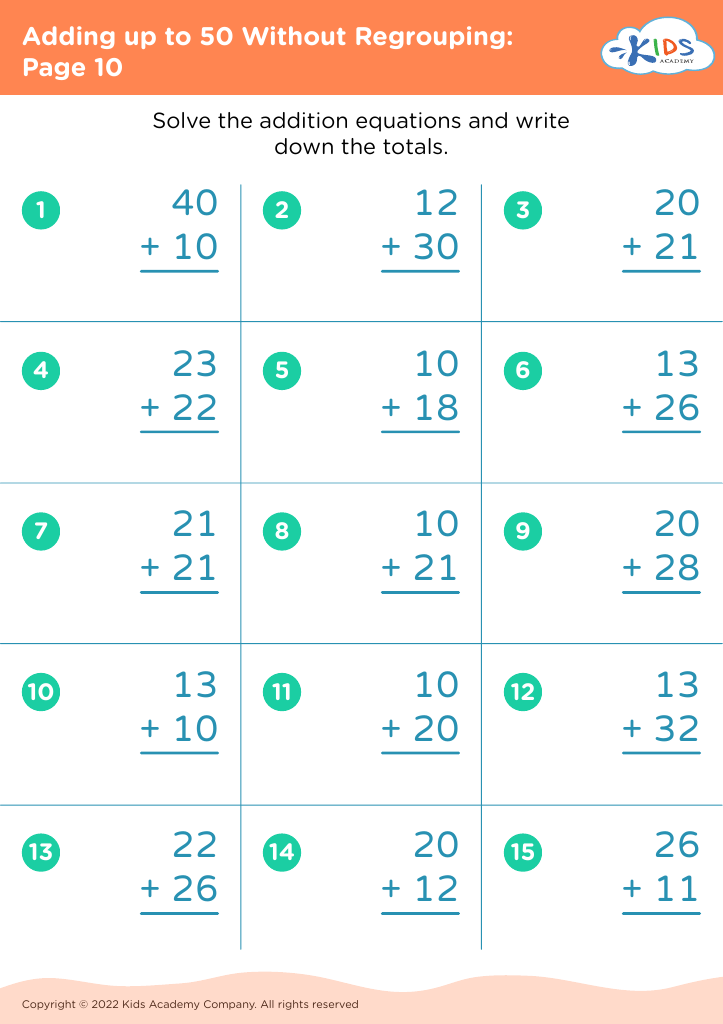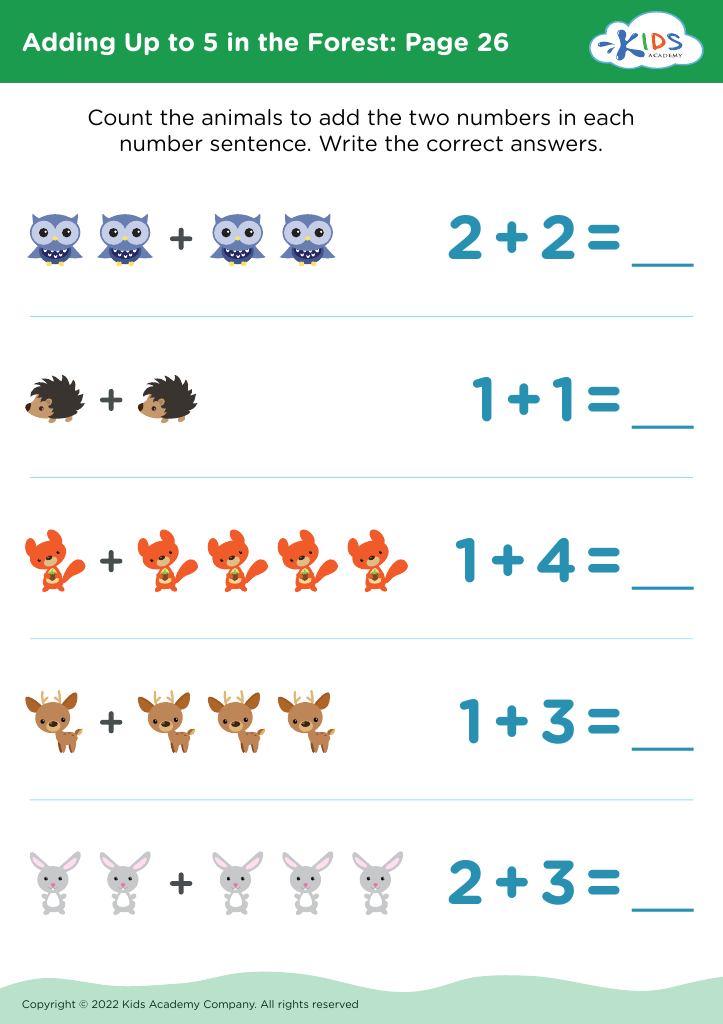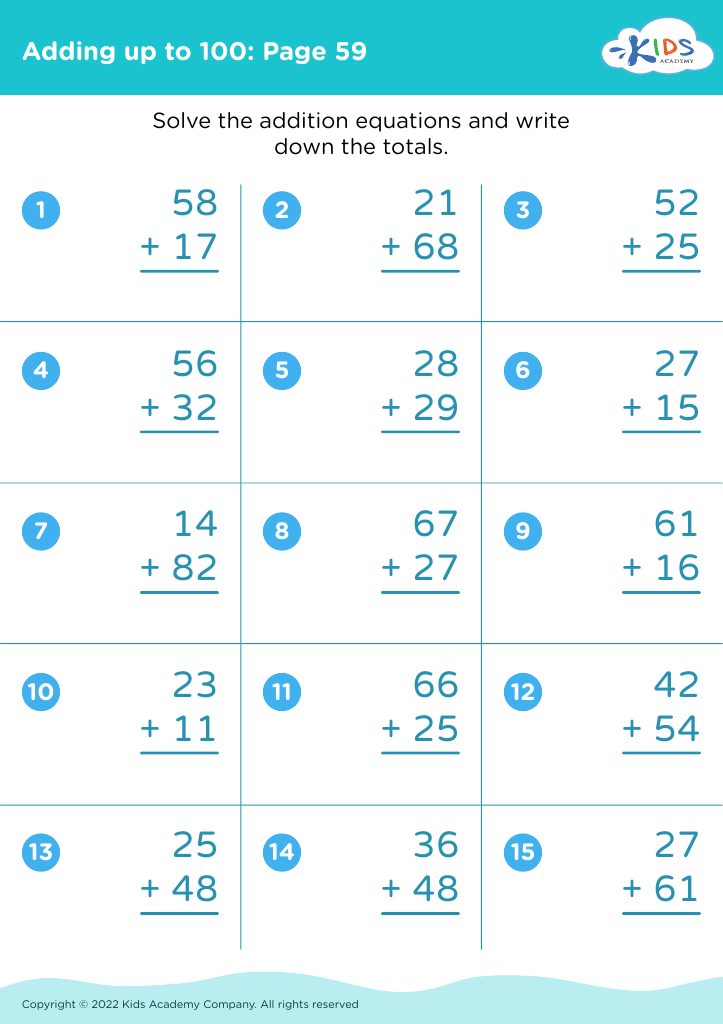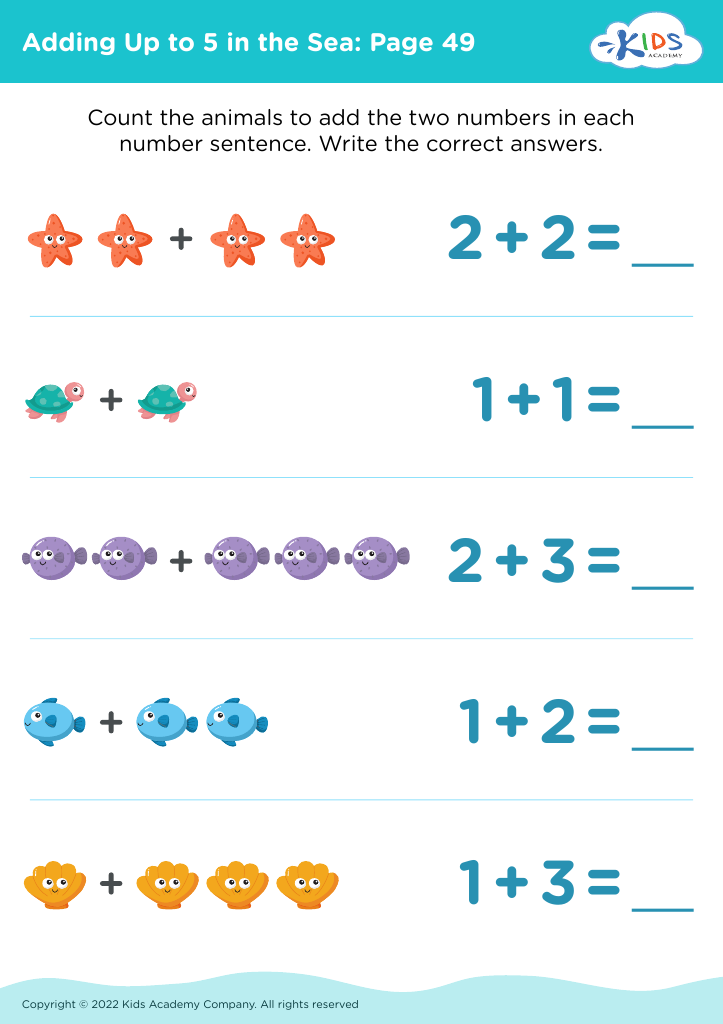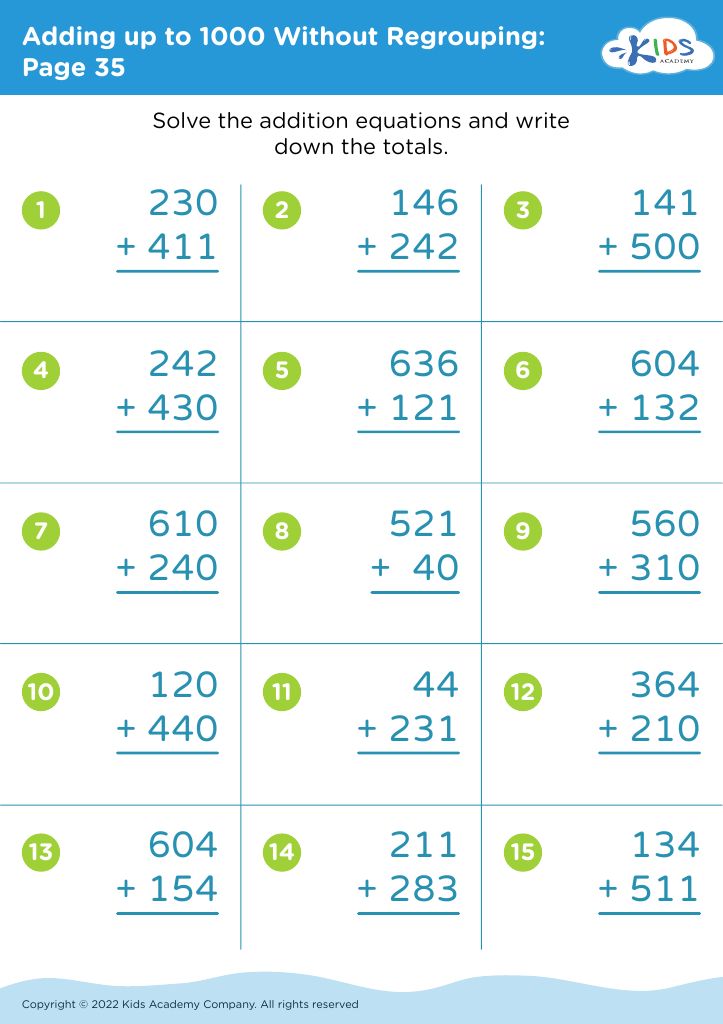Enhancing Counting Skills Addition & Subtraction Worksheets for Ages 4-7
15 filtered results
-
From - To
Boost your child's foundational math skills with our "Enhancing Counting Skills: Addition & Subtraction Worksheets" designed for ages 4-7. Featuring engaging, age-appropriate activities, these worksheets make learning fun, helping youngsters grasp vital concepts from basic counting to more complex addition and subtraction. Developed by educational experts, each worksheet focuses on building confidence and improving problem-solving abilities. Whether practicing at home or in the classroom, these resources provide a solid foundation for future math success. Ideal for parents and educators, our worksheets offer an enjoyable way to enhance early math skills and inspire a love for learning.
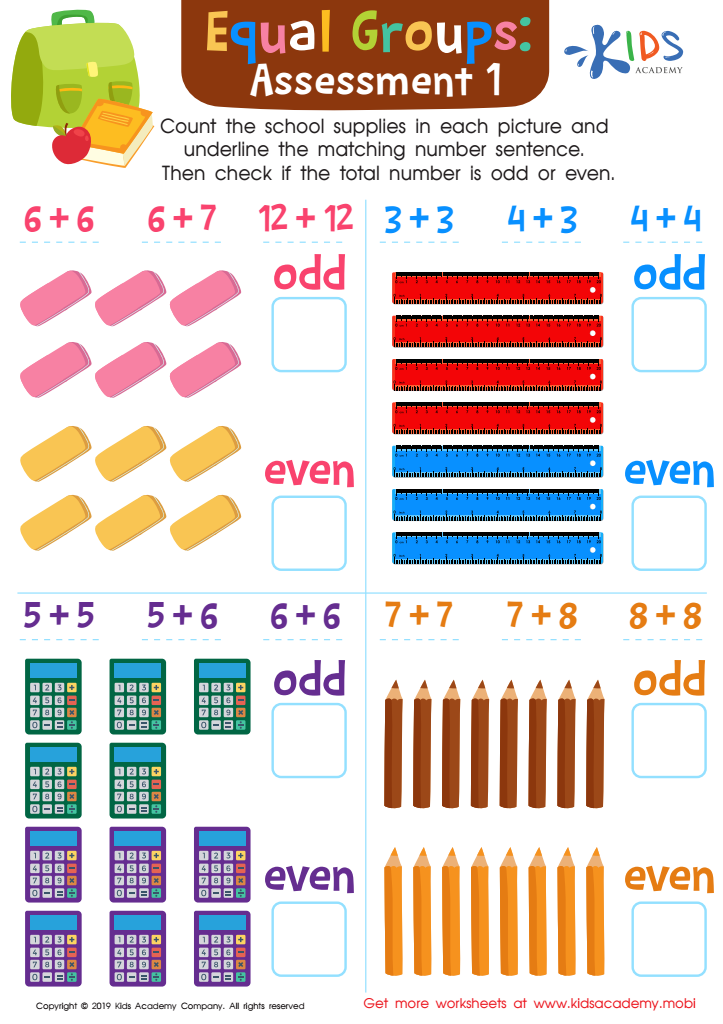

Equal Groups: Assessment 1 Worksheet
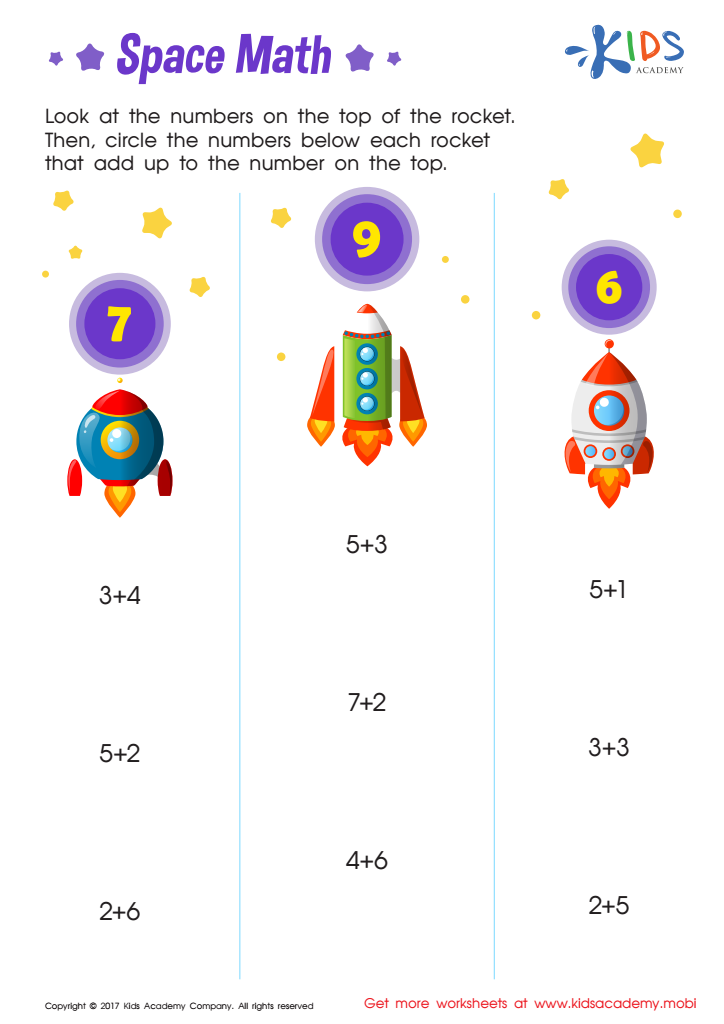

Addition: Space Math Worksheet
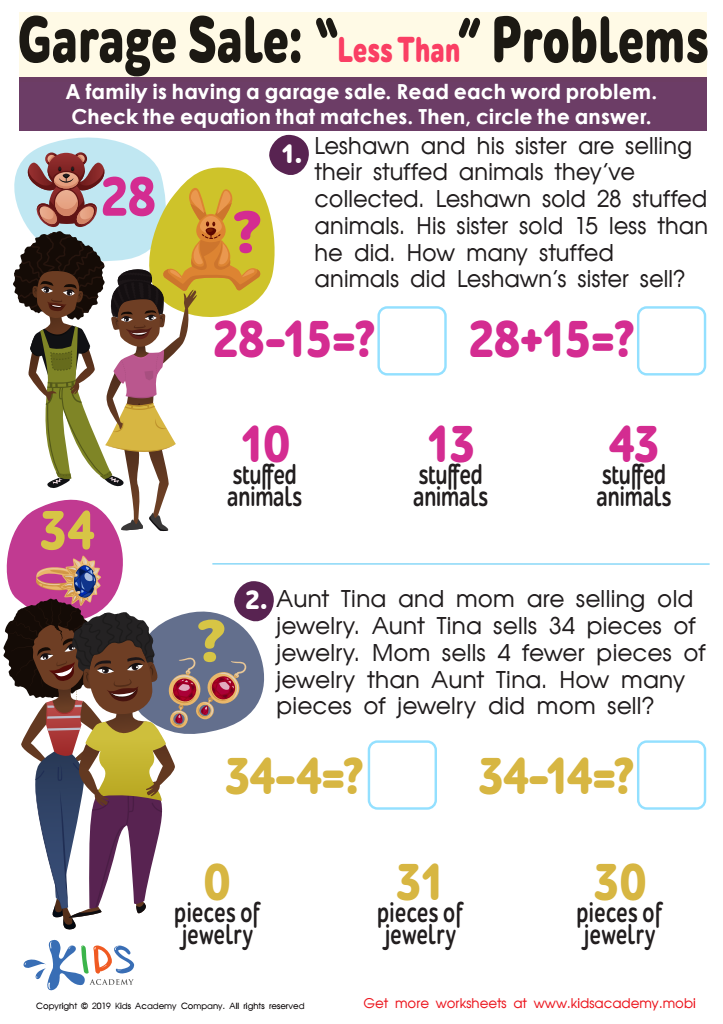

Garage Sale Less Than Worksheet
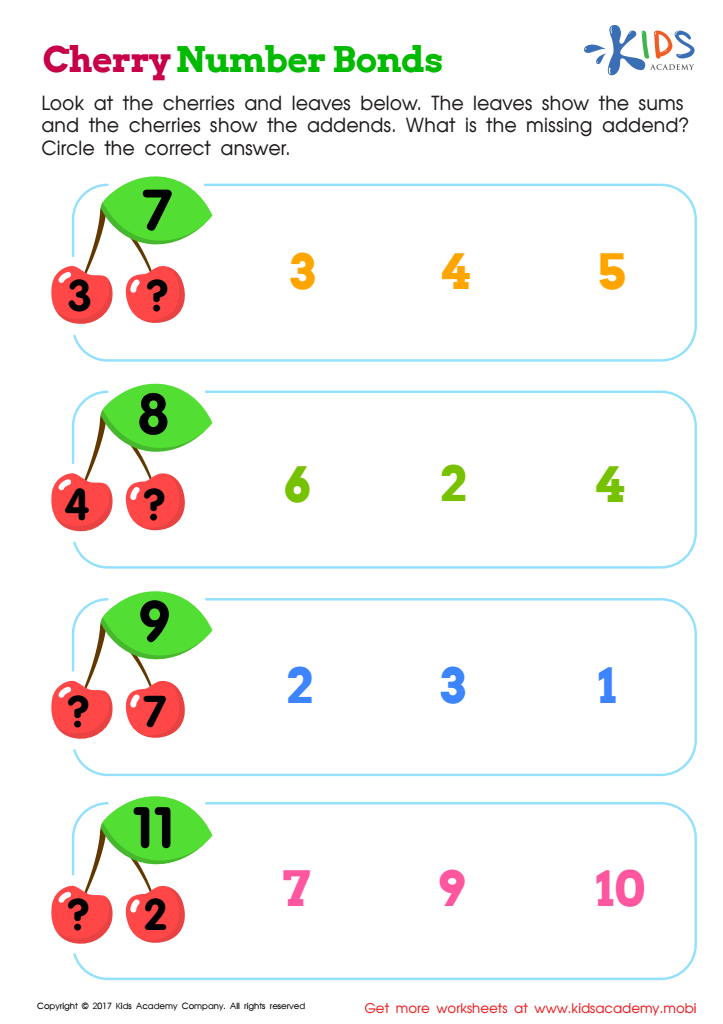

Cherry Number Bonds Worksheet
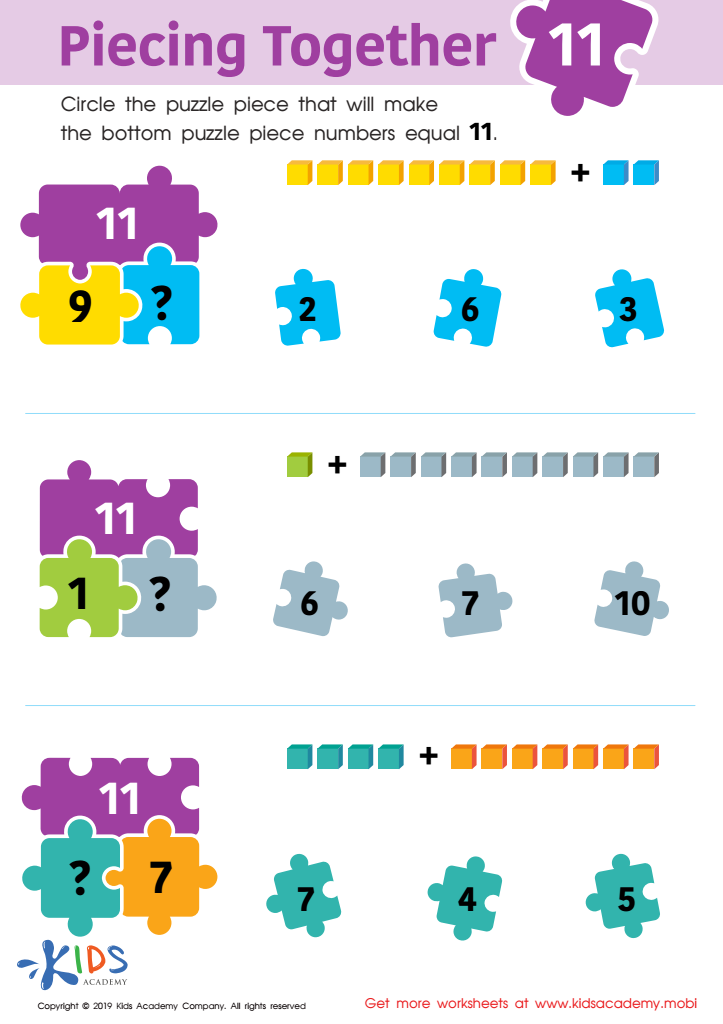

Piecing Together 11 Worksheet
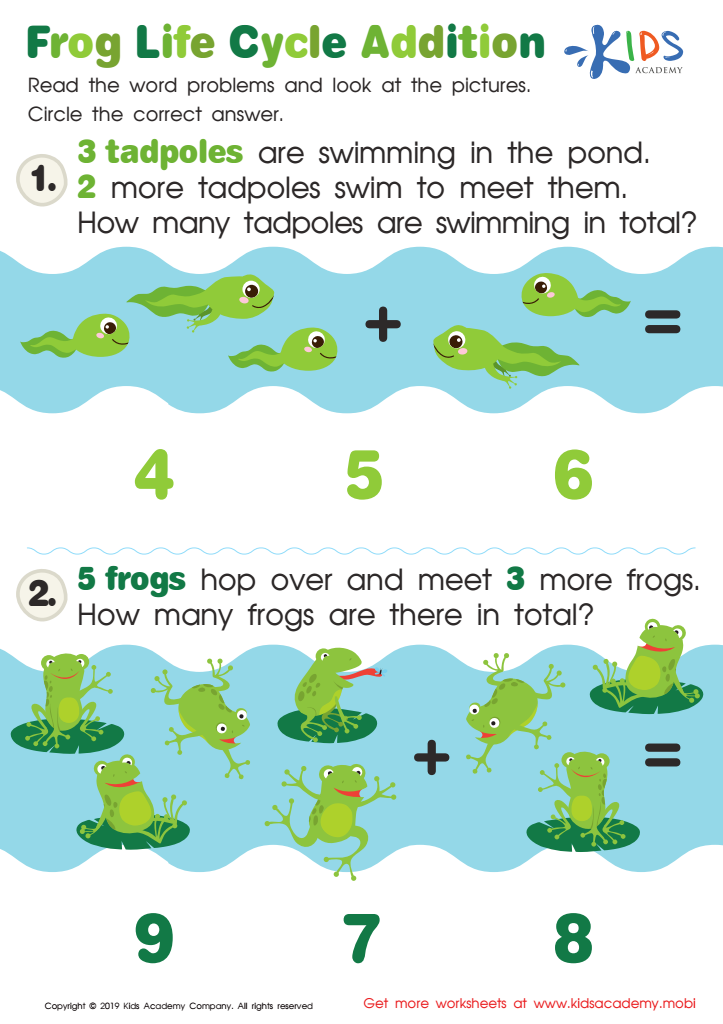

Frog Life Cycle Addition Worksheet
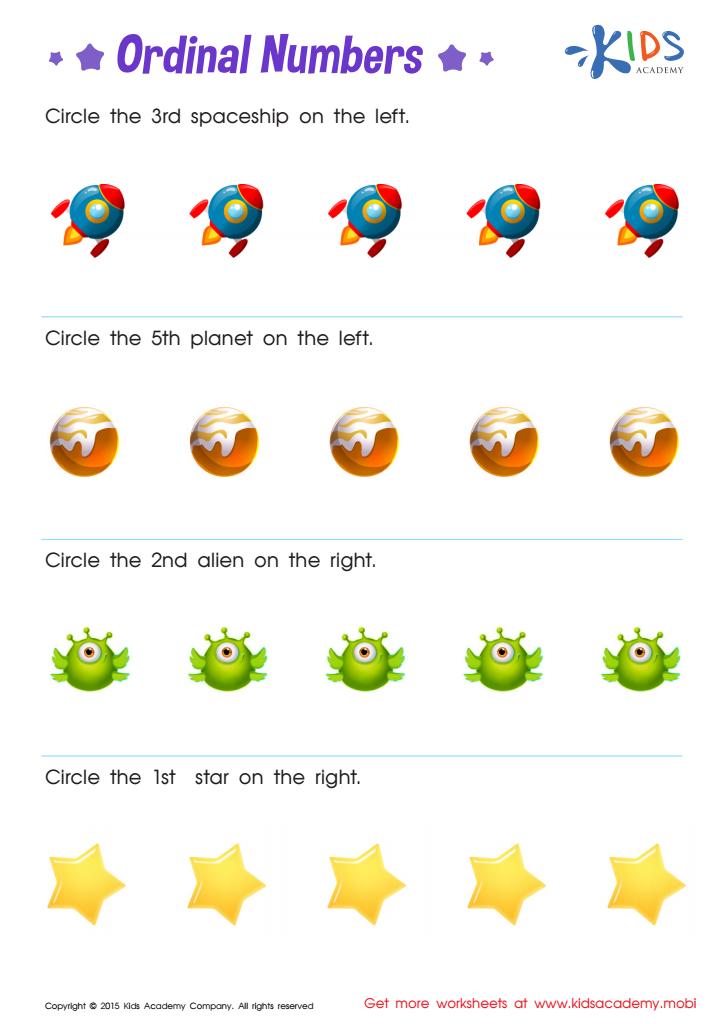

Ordinal Numbers: Space Ordinals Worksheet
Enhancing counting skills, including addition and subtraction, for children aged 4-7 is essential for several reasons. This period in a child's development is a critical window for establishing foundational numeracy skills. Strong counting abilities contribute to a child's overall mathematical understanding, which is crucial for future academic success. Children who are proficient in basic math skills tend to perform better not just in advanced mathematics but across other subjects as well.
At these ages, children are naturally curious and receptive to learning new concepts. Introducing them to counting, addition, and subtraction in engaging and relatable ways can foster a love for math early on. This can also build their confidence and help them to approach more complex problems with a positive attitude.
Moreover, early math skills are linked to improved cognitive development. Activities that promote counting and basic arithmetic enhance memory, attention, and problem-solving abilities. They also teach important life skills such as logical thinking, pattern recognition, and the ability to make decisions based on quantitative information.
Additionally, strong math abilities are essential for everyday tasks such as telling time, understanding money, and measuring ingredients while cooking, which are all skills that contribute to a child's independence. Therefore, parents and teachers should place a significant emphasis on these early mathematical skills to set children up for lifelong success.
 Assign to My Students
Assign to My Students

